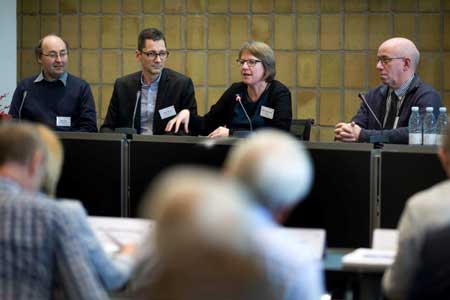By 2050, global food production is expected to have increased by more than 50%.
By 2040, global energy consumption will increase by more than 40% from the current level.
In the period from 2000 to 2050, global demand for water is expected to increase by 50%, according to the Technical University of Denmark (DTU).
The DTU International Energy Report 2016 recommends people to think innovatively and collaborate across sectors if global energy, water and food production are to keep up with increasing demand.
Global access to energy, water, and food is under threat and the two main culprits are climate change and increased population growth.
The world population is expected to increase by 33% from the current 7.4 billion to around 9.7 billion in 2050.
There are close links among the production of energy, water, and food.
Water is involved in the production of both energy (e.g. cooling in power stations) and food (e.g. irrigation of crops).
In addition to water, food production also requires energy.
Conversely, crops can be involved in energy production (e.g. biomass).
No more silo mentality
The sectors must therefore be seen in the context of the so-called energy-water-food nexus.
Nevertheless, political and administrative decisions are made separately within each sector.
The message at the Energy-Water-Food Nexus 2016 conference at DTU on December 6, 2016, where the report was also presented, was that this needs to change, as new solutions must be found across the three sectors.
“Solutions that take into consideration the correlation between the three sectors ensure more sustainable management of resources and can also ensure that everyone has access to them,” said DTU’s dean of research, Katrine Krogh-Andersen, when she presented the report to more than 100 researchers and stakeholders from the energy, water and food sectors in Denmark.
She drew attention to the report’s proposal for ensuring collaboration, which is that Denmark should establish an international Energy-Water-Food Nexus research and development center to bring the sectors together and connect key players from both the private and public spheres.
Research and development can lead to new production technologies and methods, as well as a greater knowledge base for public agencies when they need to make decisions about the management of resources.
Article by Lotte Krull from DTU










